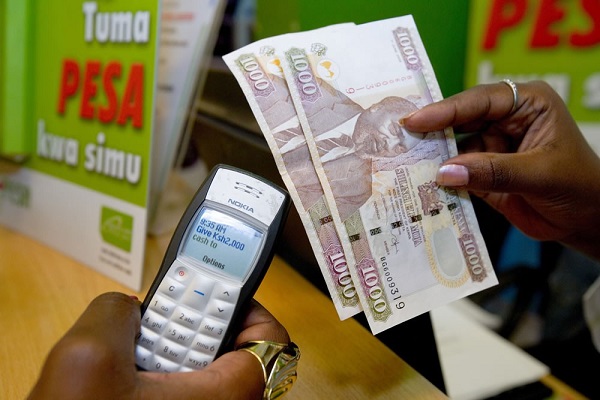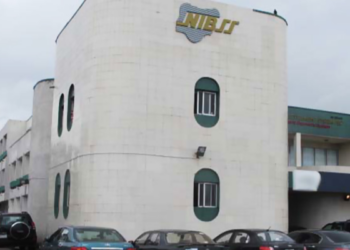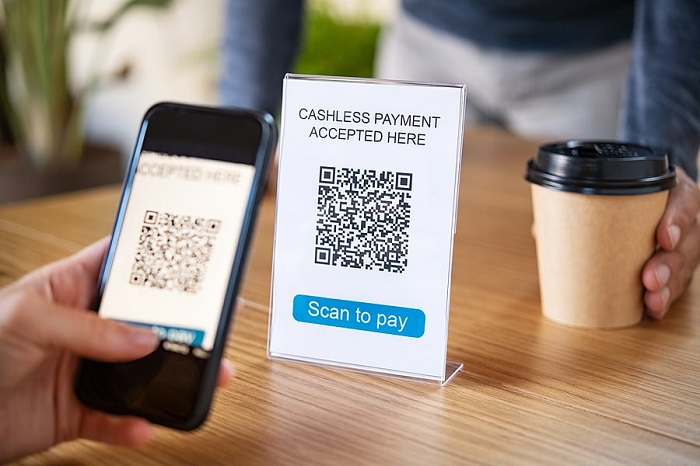Funds transfer in Nigeria has come a very long way. Today, if you want to transfer money to your kid in a University located in another state, all you need to do is open your banking application and punch in the amount, select bank and beneficiary and in seconds the money will get to your child.
The beauty about this is that, you and your child don’t need to have an account in the same bank to ensure that the transfer goes through. You also need not be in the same location or even call anyone to confirm the transaction. Everything is handled in a matter of seconds by the respective banks without having to go through another third party.
Now imagine a world where this wasn’t possible? If you had to transfer funds from your account to your child’s, you would perhaps operate the same bank account instead of separate ones. If you wanted to withdraw money from an ATM, it would have to be the one owned by your bank. Withdrawing from a third-party bank would likely be impossible. This scenario is reality in some African countries today.
M-Pesa is the most popular, no doubt
For a lot of Nigerians looking to start a Fintech company, one of the products often cited as a model for financial inclusion is M-Pesa, the Kenyan mobile money transfer product that has taken the world by storm. M-Pesa allows users to deposit, withdraw, transfer money and pay for goods and services easily with a mobile device. Using a combination of GSM technology and a mobile software application, M-Pesa facilitates sending remittances across the country from one user to another, bypassing the banks. It also relies on an agent network structure that enables users cash money easily without having to visit any bank.
M-Pesa is so successful, it has been viewed as a model for financial inclusion across the world. Such is the popularity of M-Pesa, that several other Startups across Africa have tried to replicate the same model in their home countries. Nigeria is of course not excluded going by the plethora of M-Pesa like products across the country. Unfortunately, none of them have been able to replicate the wonders of M-Pesa despite millions of dollars of venture capital backed investments. The reason why this incredible product can’t be replicated in Nigeria with such success is perhaps due to what you and I as Nigerians enjoy today, the Nigerian Interbank Settlement System (NIBSS).
The NIBSS was introduced in 1992 by the Bankers Committee following the need to introduce a Shared-Service infrastructure for facilitating payments finalities, streamlining Inter-bank payments and settlement mechanisms, and to drive and promote Electronic Payments across the Nigerian Financial Industry. The NIBSS which is owned by the Central Bank of Nigeria (CBN) and all licensed Deposit Money Banks in the country, drives collaboration with all Nigerian Banks, Card schemes, Processors, Payment Terminal Service Providers (PTSPs), Mobile Money Operators (MMO), Telecommunication providers and other Payment Service providers to improve adoption of Electronic Payment in Nigeria.
This infrastructure is the reason why you and I can transfer money from one bank to another and receive payment confirmation within seconds. All you need to own is a bank account and a mobile phone. You also do not need have an internet connection on your mobile phone to effect transactions as banks have now introduced USSD applications that facilitate transfers between their customers and recipients, again without having to share the same bank account.
In Nigeria, payment for goods and services is also made possible via an infrastructure gateway provided by Interswitch, a digital payment company that commenced operations in Nigeria in 2002. Interswitch facilitates the electronic circulation of money as well as the exchange of value between people and business, allowing them pay for goods and services over the internet.
Why is this important?
Appreciating the impact of Interswitch and NIBSS in facilitating transfer of funds and payment for transactions in Nigeria can help one understand why the wonders of M-Pesa is yet to be replicated in Nigeria and indeed other countries that share similar payment infrastructure as Nigeria. In fact, Kenya, where M-Pesa originated, until recently, did not have an interbank mobile money transfer platform. Thus, before the advent of M-Pesa, Kenyans could not transfer funds electronically from one bank to the other.
Could this be why M-Pesa has such a strong economic moat in Kenya that is hard to replicate across Africa? We are inclined to believe so, particularly in Nigeria. For any Fintech company to try to replicate the success of M-Pesa in Nigeria, they would have needed to be aided by the absence of an interbank transfer infrastructure and an Interswitch to be dominant and grow exponentially.
Some proponents of agent banking will point to the millions of unbanked Nigerians as a reason to be optimistic that M-Pesa can be replicated in Nigeria. Available data suggest that about 30 million Nigerians are captured and have bank accounts, leaving about 50 million more as unbanked. Therefore, for most of these Fintech Startups, the model has been to focus on the unbanked, hoping that the adoption of an agent networking structure would help attract millions of Nigerians who have apathy to banking services.
Unfortunately, targeting this market segment is expensive and requires a lot of patient capital. Nigerian banks are also not sitting idle, as they have the funds, network and economies of scale to target the unbanked through several equally innovative products that can keep them well within the banking system. The result is a winner-take-all and as things stand, deposit money banks appear well positioned to win this battle.
This in our opinion requires that the agent banking model in Nigeria be completely rethought, with a view to ditching the concept that worked so well in Kenya and Tanzania. Focus, should instead move towards the internet banking space where Startups can still garner significant market share. According to data from the CBN, internet web transactions was about 1.7 million valued at N12 billion in June 2017 compared to POS that’s about 11.2 million valued at N107 billion.
They might as well invest in a business model that can provide an economist of scale that offers agent banking or mobile banking as a part of a network of services that scale on the back of the synergy each product creates. Stand alone services, particularly in Nigeria, have a more precarious path to success. For many start-ups in this space, they will simply die off or remain a drain pipe for venture capital funds.
The bottom line here is that, Startups looking to replicate businesses that have worked so well in other countries, must learn to identify the exogenous factors that may have been the secret to the miracle. Most times, the secret is not what you don’t know but what you have ignored.
























